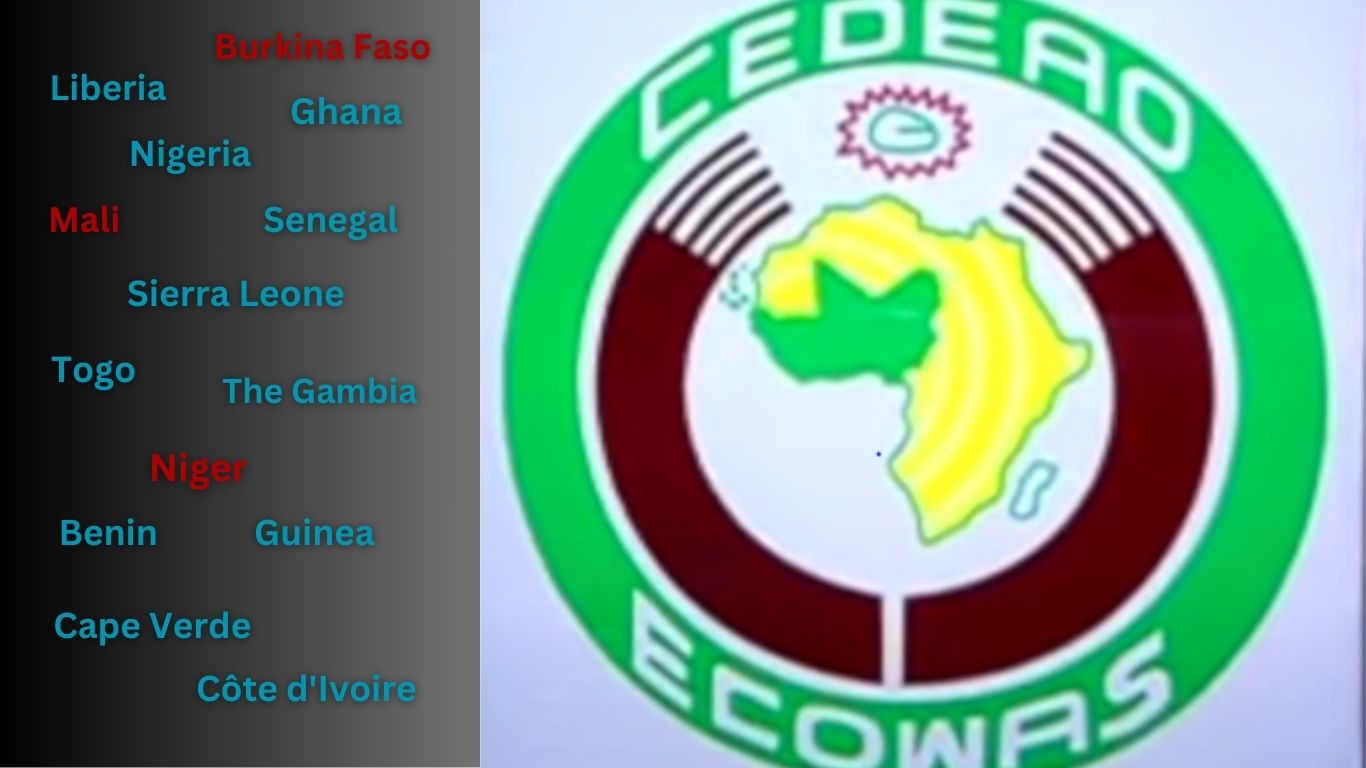The Economic Community of West African States, ECOWAS, has initiated a transition phase for its members who have decided to exit.
For the next six months, it will try to negotiate a deal to reverse the exit of Burkina Faso, Mali and Niger. However, that seems like a lost course as the group had already introduced a rival entity the Alliance of Sahel States (AES ) and did not hesitate to turn down the proposal for a reversal.
Diplomatic tensions have raged between Ecowas and the three for over a year following a military coup in each of these countries. This progressed quickly as the bloc placed a demand on the exiting countries to restore diplomatic rule.
Burkina Faso, Mali and Niger have now given a joint announcement about their official exit from the West African regional bloc Ecowas.
Regional Economic Integration
At 50 years old, Ecowas should be Africa’s most relevant regional group. However, the bloc is not exactly a model or the envy of non-members.
The Lagos Treaty on which the Ecowas was founded in 1975 has a mission to foster economic integration across the region. The basic blueprint of the treaty seeks to raise the standards of living in member states with major strategic moves.
However, the Ecowas has continually failed its member-states at all levels.
It has failed at several economic factors ranging from equitable business practices for member-state nationals. Adherence to the bloc’s policies on the ease and freedom of doing business and crossing borders is complicated by state officials who constantly make it a nightmare for the other party.
The inconsistencies in the implementation of regional integration can be attributed to diverse economic architectures and political ambitions.
This division exposes the weakness of the Ecowas bloc, that member states can pull off an exit without a second thought. Exiting countries have high hopes for true sovereignty and independence in the future.
Burkina Faso, Mali and Niger
Ecowas had threatened to deploy its forces to Niger in order to restore democratic rule in the withdrawing countries. One of its first moves after the coup in Niger was closing the border to the country. A no-fly zone for all commercial flights sanction followed and lastly the bloc froze central bank assets.
For the last four years, relations between Ecowas and the three Sahel countries have deteriorated after the military in these countries quickly seized power from the existing government. The Ecowas suspended each and their response to the suspension was an announcement to exit the bloc.
All attempts by Ecowas to restore democratic rule in these countries have failed. The three juntas have it all mapped out showing solidarity with Russia and distaste for the West.
Ecowas has said it would not shut its doors to Mali, Burkina Faso and Niger as it tries to forge new working terms a future relationship with the three countries.
More so, all passports and identity cards bearing the Ecowas logo held by citizens from Mali, Niger and Burkina Faso are still acceptable within the region. The countries can still operate within the free-trade scheme of Ecowas.
AES chairman, Mali’s military ruler Assimi Goïta, responded that it will maintain the rights of Ecowas citizens to “enter, circulate, reside, establish and leave the territory” of the new bloc.
The ECOWAS Fight Against Insuregency in West Africa
The Ecowas bloc will have to brace itself for a new era after losing 76 million people. It is probably a good time to restructure peace-keeping force and insurgency combat strategies.
Insurgency in the exiting countries has overflowed into bordering countries with Nigeria having to deal with terrorists from Niger at its most northernmost states. The exit may weaken regional unity and collaboration in fighting insurgencies, but the exiting countries are on their own now.
Also, with more than half its total geographical land area, the area of operations of insurgent groups in the region will likely be confined.
The juntas now rely on Russia for weapons and mercenaries, and Ecowas could be relieved of their support for Mali, Burkina Faso and Niger in their fight against the jihadists
